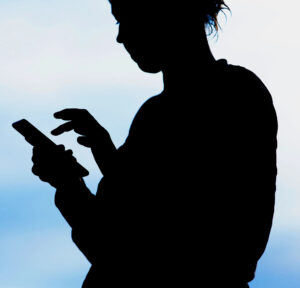Losing The Magic
The truly beautiful cannot be touched.
It demands distance.
Faced with the sublime,
we stand back in awe.
When praying we fold our hands.
The sense of touch destroys distance.
It knows no astonishment. It demystifies, de-auratizes
and renders profane what is touched.
The touchscreen sublates
the negativity of the other, of the unavailable.
It generalizes the haptic compulsion to make everything available.
In the age of the smartphone,
even the sense of sight succumbs to haptic compulsion
and loses its magic.
It loses the capacity for astonishment.
The distance-destroying, consuming way of seeing
approximates the sense of touch.
It desecrates the world.
-excerpt Non-things by Byung-chul Han. p. 20 pub. 2021
 Yeah I recognize the terminology is dense. What does “de-auratize” mean? The translation of the German word means to strip away glory, the brilliance, to render naked. To render something extraordinary, to be common. And “to sublate,” what does that mean? The word from Latin means to remove, to take away. Finally, WTF is “haptic?” It means to simulate, to mimic touch, — the tactile, feedback reaction that you sometimes get when swiping a touchscreen, and particularly the feedback reflex when using a virtual reality device.
Yeah I recognize the terminology is dense. What does “de-auratize” mean? The translation of the German word means to strip away glory, the brilliance, to render naked. To render something extraordinary, to be common. And “to sublate,” what does that mean? The word from Latin means to remove, to take away. Finally, WTF is “haptic?” It means to simulate, to mimic touch, — the tactile, feedback reaction that you sometimes get when swiping a touchscreen, and particularly the feedback reflex when using a virtual reality device.
As a child I was often told by my parents, “Do not touch…” when in a department store, surrounded by many items on display. The naive touch of a child risks damage to merchandise. Children feel a compulsion to touch, to make what is within reach, theirs. A child does not yet understand there are things available for visual appreciation, that ought not to be handled, touched. To handle something, is to appropriate it, to eliminate the separation, the distance entailed by sight. Handling is a form of consumption.
There are many, many things that ought not to be handled.
On occasion when at the racetrack I will encounter a car that has a gorgeous rendering of colors and graphic design, a paint job that gleams in the sunlight. Posted nearby will be a sign, “Please do not touch.”